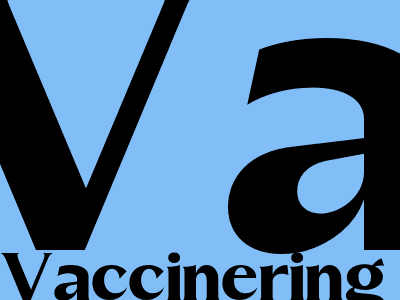Everything You Need to Know About Vaccinating Against COVID-19
Understanding the Importance of Vaccination
COVID-19 has posed a significant threat to global health, affecting millions of individuals worldwide. Vaccination plays a crucial role in combating this pandemic, providing protection against severe illness, hospitalization, and death.
Vaccines work by stimulating the immune system to produce antibodies, which recognize and neutralize the virus. This helps the body fight off the infection or reduce its severity.
Types of COVID-19 Vaccines
Several types of COVID-19 vaccines have been developed, each with its own mechanism of action:
- mRNA vaccines (e.g., Pfizer-BioNTech, Moderna): Deliver messenger RNA that encodes the spike protein of the virus, instructing cells to produce antibodies specific to that protein.
- Vector vaccines (e.g., AstraZeneca, Johnson & Johnson): Use a harmless virus (adenovirus) to deliver the spike protein gene into cells.
- Protein subunit vaccines (e.g., Novavax): Contain purified spike proteins that stimulate the immune system. li>Inactivated virus vaccines (e.g., Sinopharm, Sinovac): Use inactivated whole virus particles to induce an immune response.
Vaccine Efficacy and Safety
Rigorous clinical trials have demonstrated the high efficacy of COVID-19 vaccines in preventing severe disease and death. The vaccines are also generally well-tolerated, with common side effects being mild and short-lasting.
Comprehensive safety monitoring systems are in place to ensure the ongoing safety of COVID-19 vaccines. Billions of doses have been administered worldwide, providing real-world evidence of their safety and effectiveness.
Vaccination Schedule and Doses
The recommended vaccination schedule for COVID-19 varies depending on the vaccine and the individual's age and health status. Most vaccines require a series of two or three doses, with specific time intervals between each.
It is important to complete the entire vaccination series to achieve optimal protection. Booster doses may also be recommended to maintain immunity over time.
Who Should Get Vaccinated?
The Centers for Disease Control and Prevention (CDC) recommends vaccination for all individuals aged 6 months and older. Vaccination is particularly important for:
- Healthcare workers
- First responders
- Essential workers
- Individuals with underlying health conditions
- Residents of long-term care facilities
Common Side Effects and Precautions
The most common side effects of COVID-19 vaccines include injection site pain, redness, swelling, fatigue, headache, muscle aches, and fever. These side effects typically resolve within a few days.
In rare cases, more serious side effects, such as anaphylaxis (a severe allergic reaction), can occur. Individuals with a history of allergic reactions should discuss with their healthcare provider before getting vaccinated.
Promoting Vaccine Confidence
Building trust and confidence in COVID-19 vaccines is crucial for achieving widespread immunization. This involves providing accurate information, addressing concerns, and ensuring equitable access to vaccines.
Healthcare professionals, public health officials, and community leaders have a vital role to play in promoting vaccine confidence and educating the public about the benefits of vaccination.
Conclusion
Vaccination against COVID-19 is a safe and effective measure to protect individuals and communities from this global pandemic. By understanding the importance of vaccination, the various types of vaccines available, and the potential side effects, individuals can make informed decisions about getting vaccinated.
Promoting vaccine confidence and ensuring equitable access to vaccines are essential for achieving herd immunity and ending the COVID-19 pandemic.

Komentar